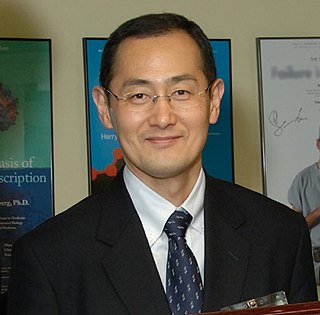A Quote by Liz Parrish
Epigenetics is very important. We are keeping a close eye on iPS cells and other genetic methods of reprogramming the epigenome.
Related Quotes
Epigenetics doesn't change the genetic code, it changes how that's read. Perfectly normal genes can result in cancer or death. Vice-versa, in the right environment, mutant genes won't be expressed. Genes are equivalent to blueprints; epigenetics is the contractor. They change the assembly, the structure.
Most of our brain cells are glial cells, once thought to be mere support cells, but now understood as having a critical role in brain function. Glial cells in the human brain are markedly different from glial cells in other brains, suggesting that they may be important in the evolution of brain function.
I think nobody would claim that random genetic drift is capable of producing adaptation, that is to say the illusion of design. Random genetic drift can't produce wings that are good at flying, or eyes that are good at seeing, or legs that are good at running. But random genetic drift probably is very important in driving evolution at the molecular genetic level.
One can envisage taking cells from a patient with sickle-cell anaemia or an inherited blood disorder and using the Cas9 system to fix the underlying genetic cause of the disease by putting those cells back into the patient and allowing them to make copies of themselves to support the patient's blood.
The study of how substances alter gene expression is part of the field of epigenetics. Some chemical exposures appear to turn on and turn off genes in ways that disregulate cell growth and predispose for cancer. From this perspective, our genes are less the command-and-control masters of our cells and more like the keys of piano, with the environment as the hands of the pianist.




































